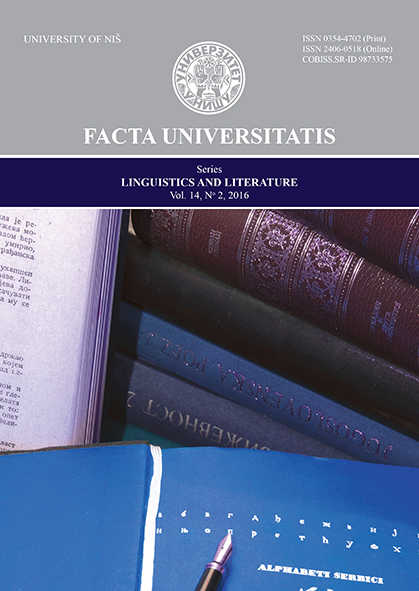Refusals in the Production of Serbian ESP Learners
Refusals in the Production of Serbian ESP Learners
Author(s): Sabina Halupka-Rešetar, Ljiljana J. KneževićSubject(s): Foreign languages learning, Higher Education
Published by: Универзитет у Нишу
Keywords: pragmatic competence; discourse pragmatics; speech acts; refusal; English for Specific Purposes
Summary/Abstract: Pragmatics plays a very important role in the process of communication, and the speech act of refusal is performed on a daily basis and in a variety of situations, which is why it has been one of the key topics in discourse pragmatic research over the past several decades. The present paper is aimed at establishing which pragmatic strategies Serbian ESP learners use in producing refusals, depending on the social status of the interlocutors. To this end, twenty B1-B2 level ESP students aged between 20 and 22, majoring in Information Science or Mathematics were randomly selected. The research is based on a survey consisting of twelve discourse completion tasks (DCTs), involving the communication situations of refusing a request, an invitation, an offer and a suggestion (of which only the former two are analysed here). The data obtained are classified, analyzed and interpreted based on a modified version of Beebe, Takahashi and Uliss-Weltz’s (1990) taxonomy of refusal strategies. The overall results of the research show that the production of the ESP learners tested significantly differs from native speakers' production of refusals. The largest differences are observed with respect to the frequency of usage of direct refusals, providing excuses, reasons and explanations, as well as with respect to adding statements of alternative.
Journal: FACTA UNIVERSITATIS - Linguistics and Literature
- Issue Year: 14/2016
- Issue No: 2
- Page Range: 103-116
- Page Count: 14
- Language: English

